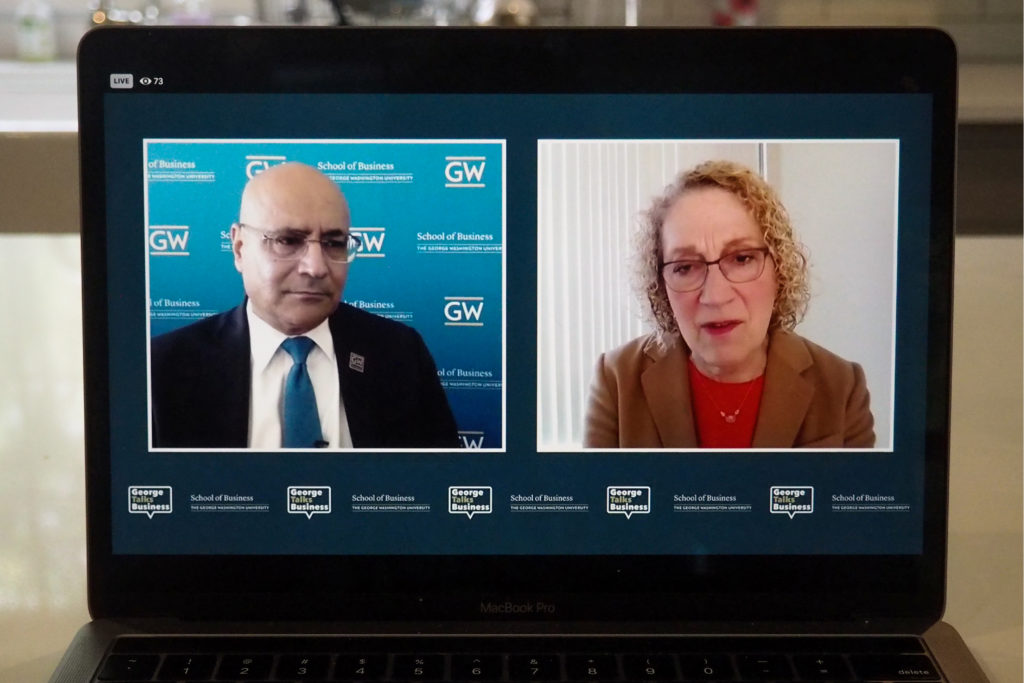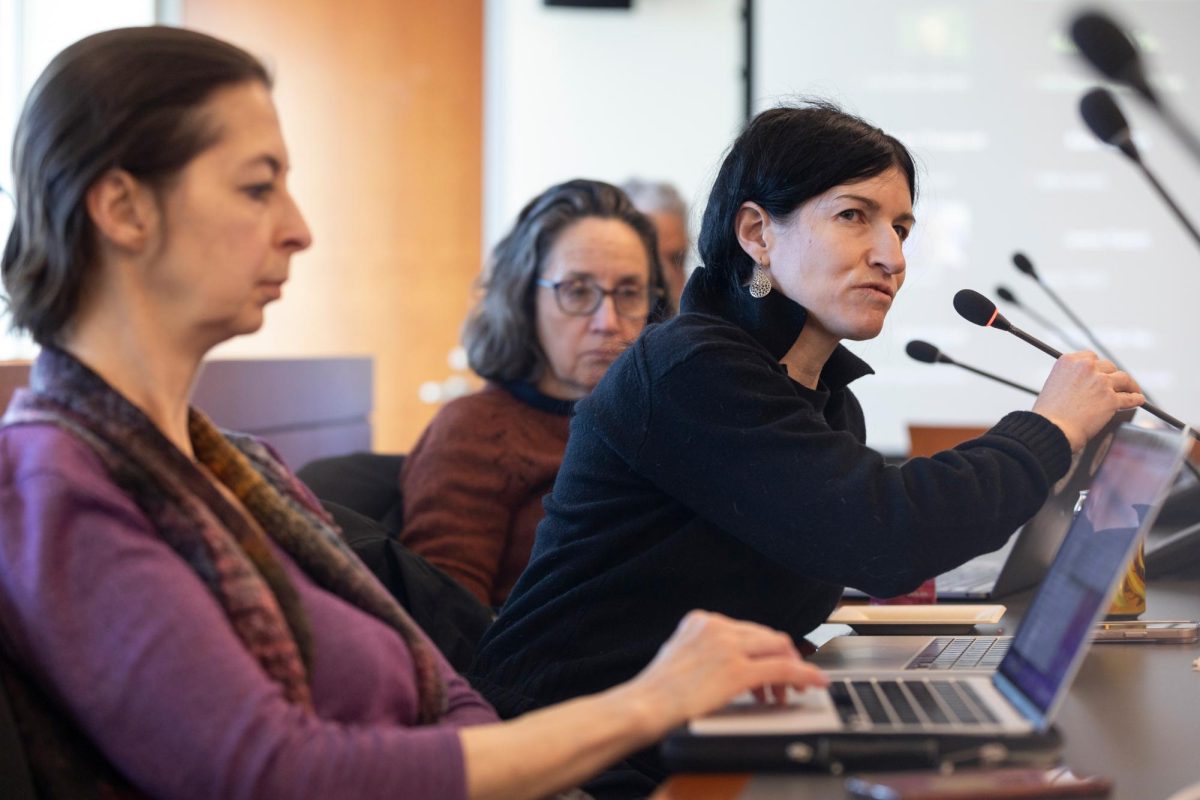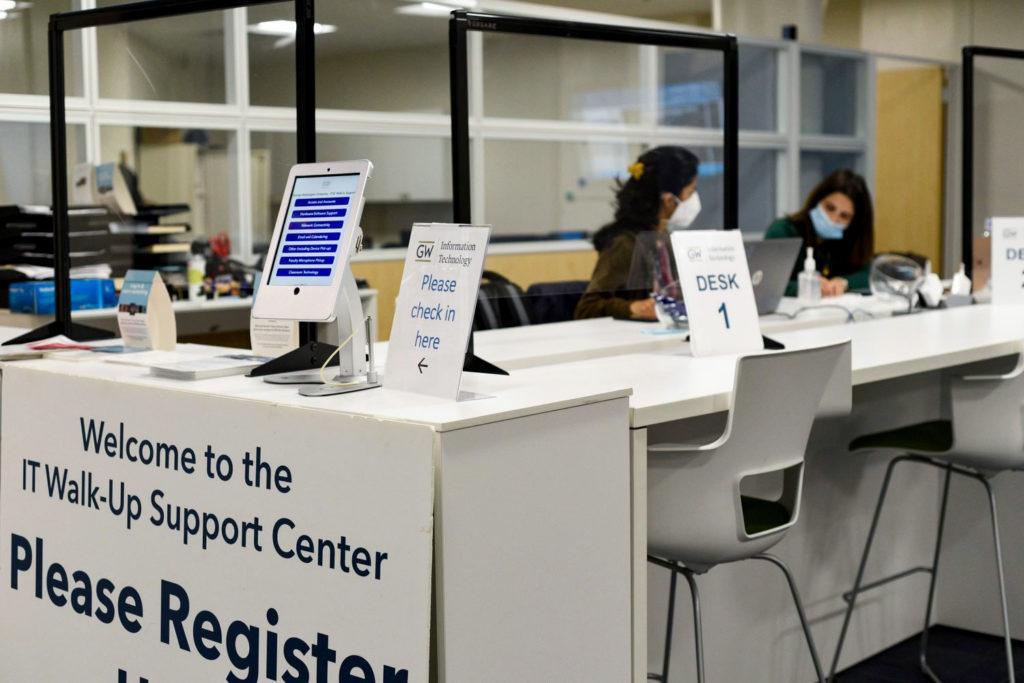Administrators said they are “hoping” to test students for the coronavirus before they return to campus in August.
Lynn Goldman, the dean of the Milken Institute School of Public Health, said at a George Talks Business event Wednesday that officials are considering sending a coronavirus test to all undergraduates planning to return to campus to gauge the prevalence of the virus among the student population. Officials said students on campus will also be required to sign a pledge to follow various health and safety guidelines.
“This is very aspirational, but I think we may be doing it,” Goldman said.
She said all students, staff and faculty will undergo a coronavirus test upon arrival on campus this fall with an additional test one week later. Officials will subsequently test the campus population periodically for the virus but have not finalized an exact schedule, she said.
Goldman said GW will provide the tests for free to the University community, and students will be required to provide consent for the testing if they return to campus. Administrators plan to spend $8.5 million for testing and contact tracing.
“We want to use testing as a way to determine the rate of infectivity at any point in time and make sure things are going in the right direction and are able to manage the virus,” Goldman said.
She added that the University will process the tests in GW’s laboratories, which she said will control the supply chain and hopefully reduce the time needed to process test results to 24 hours.
“Right now, if you go to some of the test centers in public health across the country, because of the outbreaks across the country, it might be a week to 10 days before you get an answer,” she said. “That’s not good enough to control this virus.”
Goldman said officials will also ask students to monitor their symptoms daily.
Scott Burnotes, the associate vice president of safety and security, said GW community members will be required to sign a pledge to abide by various health guidelines.
“If you’re not willing to commit to these types of behaviors, then I would have you seriously rethink about coming back, because we need you to commit to these types of behaviors,” he said.
He said officials will publish an operations playbook on the University website with information about GW’s coronavirus response, which will be updated regularly as circumstances change.
“The one thing we know about the COVID-19 crisis is that things will change and they will change rapidly,” Burnotes said.
Barbara Lee Bass, the dean of the School of Medicine and Health Sciences and CEO of the Medical Faculty Associates, said patients with COVID-19 can present an “enormous” spectrum of symptoms or even no symptoms at all.
“It’s an evolving body of evidence around this, which has actually been one of the fascinating and good things about this if you are interested in infectious disease,” Bass said. “But it’s also been one of the frustrations in terms of managing this as a public health crisis.”
Pamela Jeffries, the dean of the School of Nursing, said she has heard from many stressed students, staff and faculty in town halls in recent weeks.
“We all want answers to questions that we don’t have yet because of the uncertainty,” she said.
Jeffries said she has heard from health care workers at GW who have taken mental health days because of the intensity of caring for coronavirus patients.
“Many didn’t go home to their families because they were afraid to spread the virus,” she said. “They slept, got up and went to work.”








